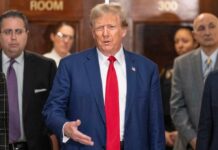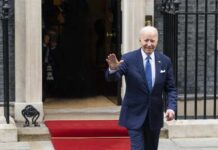
A series of internal documents released in recent months as part of the so-called “Twitter Files” narrative have highlighted the apparent influence of federal intelligence agencies in the social media platform’s decision to censor early reports about Hunter Biden’s laptop.
The New York Post published an exclusive regarding the scandalous allegations against then-Democratic presidential nominee Joe Biden’s son in the final weeks of the 2020 election season and Twitter responded by temporarily suspending the newspaper’s account and curtailing the reach of posts that referenced the story.
This decision was at the heart of a recent House Oversight Committee hearing on Capitol Hill as Republican lawmakers grilled a quartet of former Twitter executives about the evidence they used to determine that the Post story was part of a Russian disinformation campaign.
As it turns out, Twitter apparently did not need prodding by the FBI and instead relied on even flimsier evidence like tweets posted by users who claimed to know that reports about the scandalous information recovered from the laptop were somehow unreliable. Of course, even Hunter Biden has since acknowledged that the computer in question actually did belong to him.
Yoel Roth, who was Twitter’s global head of trust and safety at the time, asserted on Oct. 14, 2020 that the story “didn’t clearly violative” of the platform’s ban on hacked material but, as Rep. Andy Biggs (R-AZ) pointed out during this week’s hearing, he changed his mind a little more than an hour later.
In a follow-up email, Roth claimed that “the key factor informing our approach is consensus from experts monitoring election security and disinformation that this looks a lot like a hack-and-leak operation.”
Yoel Roth is asked if he had a personal political bias while at Twitter
His answer: “No”
How is this not a lie Under Oath?
— Benny Johnson (@bennyjohnson) February 8, 2023
Republicans on the panel were curious about which “experts” Roth and his team had talked to during that short window of time, prompting him to acknowledge that the sources “were tweeting about this incident and sharing their perspectives, and that informed some of Twitter’s judgment here.”
In fact, Rep. Kelly Armstrong (R-ND) engaged in a line of questioning that ended with a stunning admission from Roth.
“After 2016, you set up all these teams to deal with Russian interference, foreign interference, having regular meetings with the FBI, you have connections with all of these different government agencies, and you didn’t reach out to them once?” she asked.
Roth replied: “That’s right.”




























